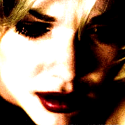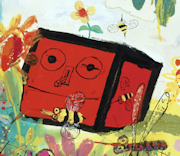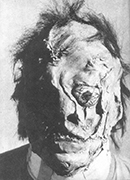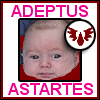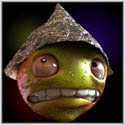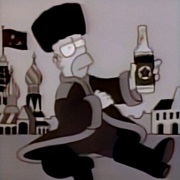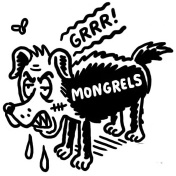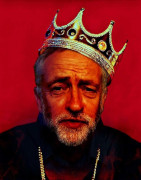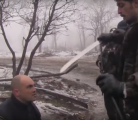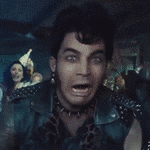|
Can anyone recommend one of Foner's various editions and books on Reconstruction? Amazon's got quite a few and I wasn't sure which to pick.
|
|
|
|

|
| # ? May 15, 2024 17:35 |
|
So not really history, but the non fiction thread is archived and this one gets more traffic anyway, but recently finished Paul Mason's PostCapitalism: A Guide to Our Future which had some pretty interesting ideas in it. Also just started What About Me? The Struggle for Identity in a Market-Based Society by Paul Verhaeghe which tries to describe the long term impact that living in a neoliberal society has on our psychology. Anyway could be pretty neat or completely daft as these things inevitably are. Anyone read either of these books or something similar? Thoughts? Discussion? 🤔
|
|
|
|
fridge corn posted:So not really history, but the non fiction thread is archived and this one gets more traffic anyway, but recently finished Paul Mason's PostCapitalism: A Guide to Our Future which had some pretty interesting ideas in it. It's not directly related to either of those, but The Spirit Level: How Equality is Better for Everyone by Richard Wilkinson and Kate Pickett is a pretty great look at how living in unequal societies is bad for everyone, summarizing a huge body of social scientific and health research into a very readable book. Considering neoliberalism and inequality go together, I think it's a really good insight into why our world is so hosed up. It affected my thinking a lot on what I want to study and why.
|
|
|
|
Suuuper late, but thanks for the suggestions on Chinese history. I picked up China: A History since it had a kindle edition and I took it camping this weekend and really enjoyed it. The author has a good sense of humor about how much work it takes to organize and write about Chinese history.
|
|
|
|
vyelkin posted:It's not directly related to either of those, but The Spirit Level: How Equality is Better for Everyone by Richard Wilkinson and Kate Pickett is a pretty great look at how living in unequal societies is bad for everyone, summarizing a huge body of social scientific and health research into a very readable book. Considering neoliberalism and inequality go together, I think it's a really good insight into why our world is so hosed up. It affected my thinking a lot on what I want to study and why. That sounds cool. Definitely in the same vein of non fiction that ive been reading lately. I'll add it to the list, thanks E: i read non fiction solely for that sort of insight you're talking about. Even the history books I read need to have some sort of analytical element to them to make them relevant to life in todays world. I recently read Domenico Losurdo's Liberalism: A Counter-History which had good insight in how current liberal ideology came to be whet it is today and was pretty good. The identity book im reading now im hoping sort of follows on from an idea mentioned in Mason's book wherein he argues how the demolishing of the working class identity by the advent of neoliberalism destroyed the working class's leverage over capitalism and the lack of that identity might be what has spurred on the current focus on identity politics in todays discourse. Or maybe not. Still not very far along with it. 😇 fridge corn fucked around with this message at 19:26 on Sep 5, 2017 |
|
|
|
Badger of Basra posted:Can anyone recommend one of Foner's various editions and books on Reconstruction? Amazon's got quite a few and I wasn't sure which to pick. https://www.amazon.com/Reconstructi...ords=eric+foner That's the one you want, the updated 2014 edition of Reconstruction.
|
|
|
|
fridge corn posted:So not really history, but the non fiction thread is archived and this one gets more traffic anyway I was similarly going to post in the non-fic thread* but for recommendations, maybe there is some good overlap between history book buffs and non-fic buffs in here who can answer my questions?: First was just general books about diseases/epidemics, with emphasis on accounts of previous ones and how they spread and how they work in the human body**, maybe how we fight and cure them. I had previously read Germs, Genes, & Civilization: How Epidemics Shaped Who We Are Today and The Hot Zone: A Terrifying True Story which both seemed good but I feel like there is more and better out there on this topic or similar. Second one is more specific but I was reading Fast Food Nation awhile back and was extremely intrigued by the chapter on the science of smells and artificial flavors, how they will use seemingly unrelated extracts/chemicals to combine into a common scent/flavor like caramel or mint or whatever. I tried to find more extensive books/articles on the subject but didn't know what to search for and got a bunch of 90 dollar chemistry textbooks popping up. *although really, isn't any non-fic written before the immediate present technically history anyway? **I swear I am not a weirdo plague cultist looking for strats
|
|
|
|
Guy A. Person posted:I was similarly going to post in the non-fic thread* but for recommendations, maybe there is some good overlap between history book buffs and non-fic buffs in here who can answer my questions?: Have you read The Immortal Life of Henrietta Lacks?
|
|
|
|
Shitshow posted:Have you read The Immortal Life of Henrietta Lacks? Oh poo poo, no, that is a really good suggestion. I remember hearing a lot about it when it came out. Thanks!
|
|
|
|
I would like any recommendations about 19th century Japanese history, the events leading to and following the Meiji restoration.
|
|
|
|
Guy A. Person posted:Second one is more specific but I was reading Fast Food Nation awhile back and was extremely intrigued by the chapter on the science of smells and artificial flavors, how they will use seemingly unrelated extracts/chemicals to combine into a common scent/flavor like caramel or mint or whatever. I tried to find more extensive books/articles on the subject but didn't know what to search for and got a bunch of 90 dollar chemistry textbooks popping up. Mary Roach's book Gulp is about eating and food science, it has at least one chapter about that subject and is all related.
|
|
|
|
Books on the papacy? Nothing specific, just, uh, the papacy. Early papacy, medieval papacy, individual popes.
|
|
|
|
|
chernobyl kinsman posted:Books on the papacy? Nothing specific, just, uh, the papacy. Early papacy, medieval papacy, individual popes. Absolute Monarchs: A History of the Papacy by Viscount Norwich https://www.amazon.com/dp/B004J4WKTC/ref=dp-kindle-redirect?_encoding=UTF8&btkr=1 Covers every individual Pope from the beginning up the current day at time of writing so the one who retired, and through them what the greater papal infrastructure itself was doing at the time.
|
|
|
|
Don't listen to fishmech and buy a book by Brian Tierney or just ask me questions.
|
|
|
|
Disinterested posted:Don't listen to fishmech and buy a book by Brian Tierney or just ask me questions. which one and tell me things only semi-related but have you read jones' before church and state?
|
|
|
|
|
Grand Fromage posted:Mary Roach's book Gulp is about eating and food science, it has at least one chapter about that subject and is all related.
|
|
|
|
Guy A. Person posted:
Salt Sugar Fat is a great book that's specifically about food industry fuckery. https://www.amazon.com/Salt-Sugar-Fat-Giants-Hooked/dp/0812982193
|
|
|
|
I'm interested in books about the history of the PLO but Google isn't being helpful - any suggestions?
|
|
|
|
vyelkin posted:It's not directly related to either of those, but The Spirit Level: How Equality is Better for Everyone by Richard Wilkinson and Kate Pickett is a pretty great look at how living in unequal societies is bad for everyone, summarizing a huge body of social scientific and health research into a very readable book. Considering neoliberalism and inequality go together, I think it's a really good insight into why our world is so hosed up. It affected my thinking a lot on what I want to study and why. Hmmm the Paul Verhaeghe book just mentioned the work of these two to help illustrate a point
|
|
|
|
fridge corn posted:Hmmm the Paul Verhaeghe book just mentioned the work of these two to help illustrate a point I guess they're more related than I thought! I don't know Verhaeghe at all so I can't judge whether this is good or bad though.
|
|
|
|
vyelkin posted:I guess they're more related than I thought! I don't know Verhaeghe at all so I can't judge whether this is good or bad though. Well he definitely holds their research in high regard
|
|
|
chernobyl kinsman posted:which one and tell me things I have and I remember studying Louis IX. I don't think he's wrong but I also don't think he's as original as he thinks he is. The Crisis of Church and State, 1050-1300 would be a place to start, when it comes to Tierney. It'll lay out the sources and the narrative and show you how the poo poo all happens, and the Philip IV issues will be thoroughly underlined. If you have questions you'll have to ask, 'tell me things' is a bit vague. Disinterested fucked around with this message at 17:57 on Sep 7, 2017 |
|
|
|
|
Guy A. Person posted:First was just general books about diseases/epidemics, with emphasis on accounts of previous ones and how they spread and how they work in the human body**, maybe how we fight and cure them. I had previously read Germs, Genes, & Civilization: How Epidemics Shaped Who We Are Today and The Hot Zone: A Terrifying True Story which both seemed good but I feel like there is more and better out there on this topic or similar. Parasite Rex by Carl Zimmer is excellent and will give you a real feel for some of the issues surrounding fighting shape-shifting diseases like malaria. If you enjoy that, Zimmer's written a bunch of other pop-sci books on microbiology and diseases. And although I've not read it yet, my mum read The Great Influenza a couple of years ago and enjoyed it so much she read it twice. It's about the Spanish flu epidemic in 1918/1919 that killed over 100 million people. There's loads of suggestions in the "Readers also enjoyed" bit of those goodreads links.
|
|
|
|
I've been listening to the audiobook of Genghis Khan and the making of the modern world and it's really engrossing.
|
|
|
|
Can any of you recommend some books that cover the Great Leap Forward and the Cultural Revolution?
|
|
|
|
I don't have much to compare them to but I found Frank Dikotter's books on both subjects pretty good for someone with little knowledge on the subject Mao's Great Famine and The Cultural Revolution, A People's History EoinCannon fucked around with this message at 21:57 on Sep 8, 2017 |
|
|
|
Mira posted:Can any of you recommend some books that cover the Great Leap Forward and the Cultural Revolution? I second Dikotter's two books. They seem to be the most up-to-date works.
|
|
|
|
Minenfeld! posted:I second Dikotter's two books. They seem to be the most up-to-date works. Thriced. The first in the series is worth it as well, The Tragedy of Liberation.
|
|
|
|
On the topic of the PRC, I'm looking for a book about China's foreign relations (both official and covert). Maybe a biography of Zhou Enlai or something? Or do Dikotter's works cover Chinese foreign policy in any detail? There are some tantalizing details in The World Was Going Our Way, which is from the USSR perspective.
|
|
|
|
I think this should cover the topic well enough.
|
|
|
|
Minenfeld! posted:I think this should cover the topic well enough. That looks very good, thanks.
|
|
|
|
Can anyone recommend a book that discusses the various schools of historical thought? I'm looking for an overview of how historiography and different schools of thought have changed over time.
|
|
|
Minenfeld! posted:Can anyone recommend a book that discusses the various schools of historical thought? I'm looking for an overview of how historiography and different schools of thought have changed over time. The classic work we used at university is What is History? by E.H Carr. Which talks about the then popular schools of historiography but it's 50 years old now and pretty dry for the non academic reader and maybe someone can recommend something a little bit more up to date?
|
|
|
|
|
Ferrosol posted:The classic work we used at university is What is History? by E.H Carr. Which talks about the then popular schools of historiography but it's 50 years old now and pretty dry for the non academic reader and maybe someone can recommend something a little bit more up to date? Lynn Hunt's Writing History in the Global Era is very recent and pretty good for this, especially since several of today's most influential schools of history (i.e. cultural history and its subfields) literally didn't exist when Carr was writing.
|
|
|
|
Carr's book isn't really a history of history, so to speak, it's just him giving his own view of historical writing (and acts as this weird preview of the duibious argumment he'd go on to make about Stalinist collectivisation being part of an inevitable historical process.)
|
|
|
|
I had this from one of my introductory undergrad courses. Revisiting it recently just made me think I needed something more in-depth.
|
|
|
|
cloudchamber posted:Carr's book isn't really a history of history, so to speak, it's just him giving his own view of historical writing (and acts as this weird preview of the duibious argumment he'd go on to make about Stalinist collectivisation being part of an inevitable historical process.) There's definitely some uncomfortable political undertones to the book, yeah, like when he quotes dictators as though they were philosophers of history.
|
|
|
|
Anyone got anything on the Tang Dynasty?
|
|
|
|
Schizotek posted:Anyone got anything on the Tang Dynasty? 
|
|
|
|

|
| # ? May 15, 2024 17:35 |
|
Any recommendations on books about Soviet art?
|
|
|







